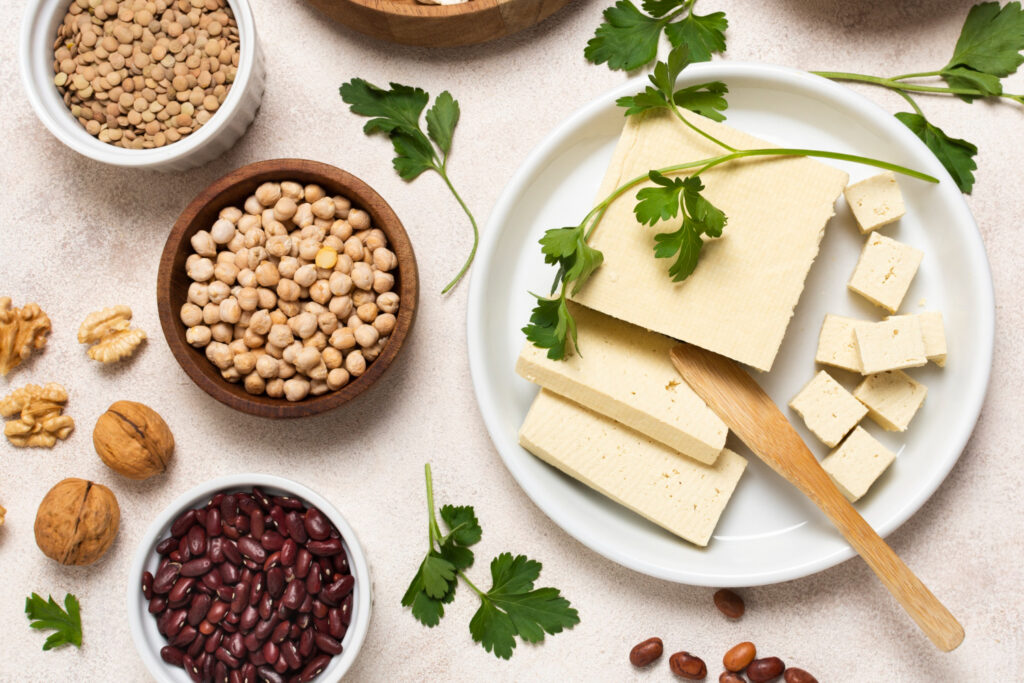
Overview
Imagine having a healthier gut, improved digestion, and boosted immunity, all from adding a few delicious foods to your diet. Probiotics, the “good” bacteria, play a crucial role in maintaining gut health and overall well-being. In this article, we’ll explore the top foods rich in probiotics and how they can benefit your health.
Why Probiotics Matter
Probiotics are living microbes that offer various health advantages when ingested in sufficient quantities. They help balance the gut microbiome, support digestion, enhance immune function, and may even improve mental health. Including probiotic-rich foods in your diet is a natural and effective way to promote overall health.
Top Probiotic Foods
1. Yogurt
Yogurt is perhaps the most well-known source of probiotics. Made from milk fermented by lactic acid bacteria and bifidobacteria, yogurt offers numerous health benefits:
- Improved bone, heart, and gastrointestinal health
- Reduced risk of diabetes, breast, and colon cancer
- Enhanced weight management
However, not all yogurts contain live probiotics. To ensure you get the benefits, choose yogurt with active or live cultures. Also, be cautious of added sugars, even in low-fat or fat-free varieties.
2. Kefir
Kefir is a fermented milk drink with a tangy flavor, similar to yogurt but with more diverse strains of probiotics. It is made by adding kefir grains to cow’s or goat’s milk. Kefir has been linked to improved bone health, better digestion, and protection against infections. It is also a suitable option for people with lactose intolerance.
3. Sauerkraut
Sauerkraut, made from fermented cabbage, is rich in probiotics, fiber, vitamins C and K, iron, and potassium. It also contains antioxidants like lutein and zeaxanthin, which are essential for eye health. For maximum probiotic benefits, choose unpasteurized sauerkraut, as pasteurization kills the live bacteria.
4. Tempeh
Tempeh, a fermented soybean product from Indonesia, is a high-protein meat substitute with a nutty, earthy flavor. Fermentation reduces phytic acid in soybeans, improving mineral absorption. Tempeh also produces some vitamin B12, a nutrient typically found in animal products, making it a great option for vegetarians.
5. Kimchi
Kimchi, a spicy Korean side dish, is made from fermented cabbage and other vegetables. It is flavored with chili pepper flakes, garlic, ginger, scallion, and salt. Kimchi contains Lactobacillus kimchii and other lactic acid bacteria that benefit digestive health. It is also high in vitamins K, B2, and iron.
6. Miso
Miso is a Japanese seasoning made by fermenting soybeans with salt and a fungus called koji. It is often used in miso soup and is rich in protein, fiber, vitamins, and minerals. Miso may help reduce the risk of high blood pressure, some cancers, and regulate cholesterol.
7. Kombucha
Kombucha is a fermented tea drink made from black or green tea. It contains a variety of bacteria and yeast that support gut health. While some studies suggest it may reduce the risk of cancer and diabetes, more research is needed. However, its probiotic properties are well-supported.
8. Soft Cheeses
Certain soft cheeses, like Gouda, contain probiotics that survive the journey through the stomach and intestines, making them beneficial for digestion.
9. Sourdough Bread
Sourdough bread is made from fermented dough and contains prebiotics that help digestion. It’s a tasty way to include beneficial bacteria in your diet.
10. Acidophilus Milk
This milk is fermented with bacteria and labeled as sweet acidophilus milk. It is an easy way to get probiotics, and buttermilk is also a good source.
11. Sour Pickles
Naturally fermented pickles, made without vinegar, are rich in probiotics. Look for those made with sea salt and water for the best digestive benefits.
12. Fish Sauce
A staple in East and Southeast Asian cuisines, fish sauce is made by fermenting small fish with salt. This process creates a liquid rich in beneficial bacteria, provided it hasn’t been pasteurized.
13. Umeboshi
Umeboshi are salted or pickled plums fermented with red shiso. They are a traditional Japanese condiment often enjoyed with rice or meat dishes.
14. Fermented Giardiniera
This pickled vegetable mix is an Italian favorite, perfect for adding tangy flavor to sandwiches and salads. Look for varieties that contain beneficial bacteria.
15. Coconut Kefir
Made by fermenting coconut juice with kefir grains, this drink has some of the same probiotics as traditional kefir but with a unique flavor and lower lactose content.
16. Natto
A Japanese dish made from fermented soybeans, natto contains Bacillus subtilis, which supports immune health and digestion. It also has anti-inflammatory properties.
17. Kvass
Kvass, a fermented beverage from Eastern Europe, is made from rye, barley, or probiotic-rich fruits and vegetables. It is known for its blood and liver-cleansing properties.
Prebiotics vs. Probiotics
While probiotics are live bacteria, prebiotics are non-digestible fibers that feed the good bacteria in your gut. Foods like asparagus, bananas, oatmeal, and legumes are rich in prebiotics. Combining prebiotics with probiotics can enhance their benefits, creating a synergistic effect on gut health.
The Takeaway
Probiotic-rich foods have been a part of human diets for thousands of years, contributing to gut health and overall wellness. By incorporating these foods into your daily routine, you can support your digestive system, boost your immune function, and potentially
A Quick Review
Probiotics, the beneficial microorganisms found in various foods, play a crucial role in maintaining gut health. Incorporating probiotic-rich foods like yogurt, kimchi, and kefir into your diet can enhance digestion, boost the immune system, and support overall well-being. Discover the top foods that pack a probiotic punch and learn how they can transform your digestive health and promote a balanced gut flora
Frequently asked questionsay
What are probiotics?
Probiotics are live microorganisms that provide health benefits when consumed in adequate amounts, particularly by improving gut health.
Which foods are high in probiotics?
Yogurt, sauerkraut, kefir, miso soup, tempeh, kimchi, and kombucha are rich in probiotics.
How do probiotics benefit gut health?
Probiotics help balance the gut flora, aid digestion, reduce gastrointestinal issues, and boost the immune system.











